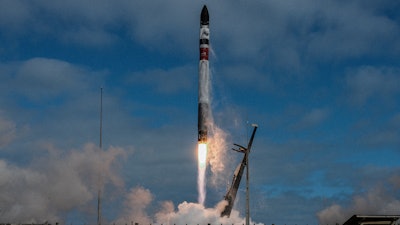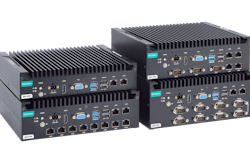
Rocket Lab, a launch and space systems company, successfully launched a dedicated Electron mission for Capella Space (Capella). The mission demonstrated several significant milestones for Rocket Lab’s reusability program, including an ocean splashdown of the Electron rocket’s first stage and the successful flight of a previously flown Rutherford engine.
The ‘We Love The Nightlife’ mission lifted off on August 24th at 11:45 am NZST from Rocket Lab Launch Complex 1 on New Zealand’s Mahia Peninsula, deploying Capella’s next-generation Acadia satellite for its synthetic aperture radar (SAR) constellation to a 640km circular low Earth orbit.
As a recovery mission, Electron’s first stage returned to Earth under a parachute after launch and splashed down in the Pacific Ocean several hundred kilometers down range from Launch Complex 1. Rocket Lab’s marine recovery vessel will soon extract the stage from the ocean and transport it back to Rocket Lab’s production complex for analysis and testing to inform future recovery efforts. In addition to recovering the booster, Rocket Lab launched a pre-flown 3D printed Rutherford engine for the first time. The engine previously flew on the first stage of the ‘There and Back Again’ mission, launched in May 2022. The engine performed on par with new Rutherford engines, completing a successful first stage burn.
The mission follows on from Rocket Lab’s two previous launches for Capella, including the “Stronger Together” mission launched in March 2023 from Rocket Lab Launch Complex 2 in Virginia, and the “I Can’t Believe It’s Not Optical” mission in August 2020 from Launch Complex 1 in New Zealand, which deployed the first satellite in Capella’s SAR constellation. ‘We Love the Nightlife’ was the first of four new dedicated launches on Electron for Capella, announced in February 2023, to deploy Capella’s next-generation Acadia satellites.
Capella’s existing satellite constellation delivers the highest quality and resolution SAR imagery commercially available, with the ability to penetrate all weather conditions and capture clear imagery 24-7, day and night, delivered through a fully automated ordering and delivery platform. The next-generation Acadia satellites include several enhancements, including increased bandwidth and power and faster downlink speeds. When combined with Capella’s existing long-dwell imaging capability and extended duty-cycle – which results in more images collected per orbit than other SAR systems – Acadia will continue to set the benchmark within the SAR industry.






















